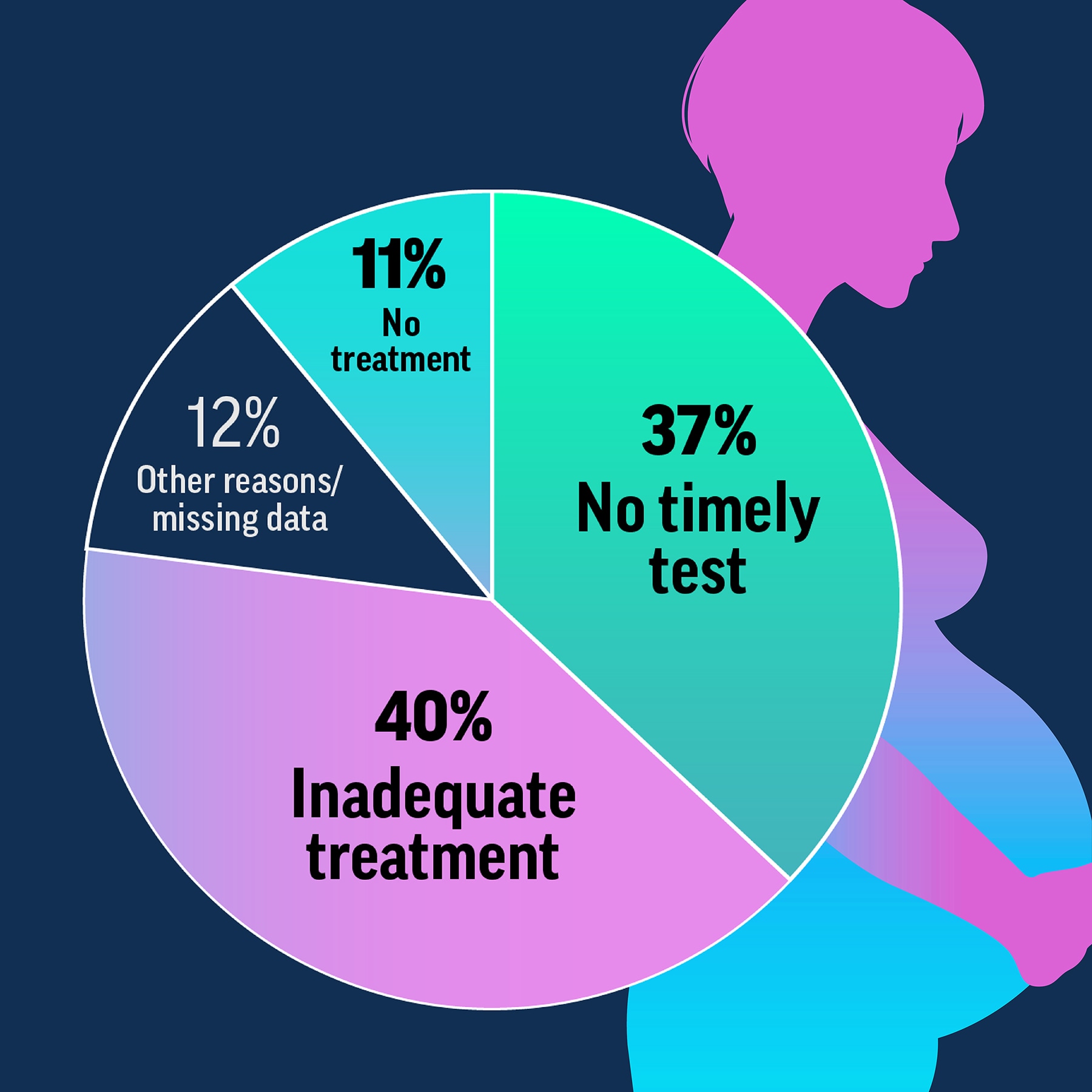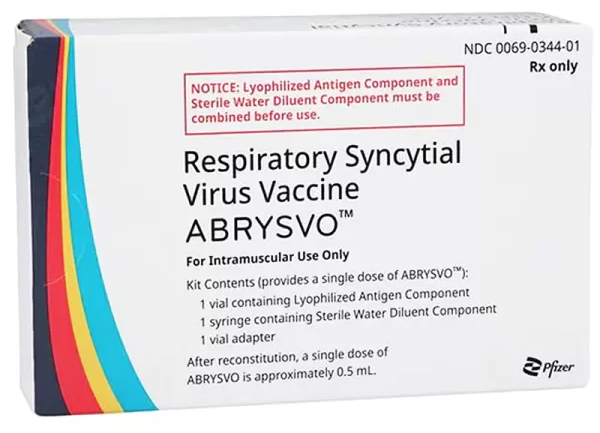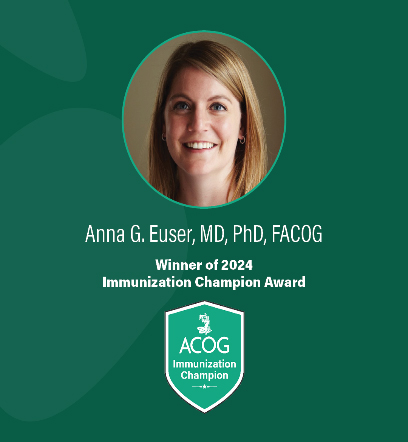Welcome to the 2024 Fall edition of our CU MFM e-newsletter! As we enter respiratory season, we are focusing on guidelines around infectious diseases in pregnancy, specifically Syphilis and the RSV vaccine for pregnant patients.
CU Maternal-Fetal Medicine Fall 2024 Newsletter
Syphilis and Pregnancy
Over the last decade, there has been a dramatic increase in the incidence of primary and secondary syphilis in adults, including reproductive aged women, nationally and within Colorado. Unfortunately, there has also been an increase in the rates of congenital syphilis. From 2012 to 2021, the national rate of babies born with congenital syphilis has increased 755%. In Colorado, there were 50 cases of congenital syphilis in 2023, up from zero cases in 2015.
If left untreated, 40% of syphilis infections result in miscarriage or stillbirth. The risk of congenital syphilis in neonates in affected pregnancies is 70-100% and complications can include blindness, deafness, developmental delays and bone deformities. Fortunately, Syphilis can be treated successfully with Penicillin, thus only 1-3% of infants born after appropriate treatment are affected with congenital Syphilis. Treatment after birth may also help prevent complications.
Data analysis of the 3,761 cases of congenital syphilis in the United States in 2022 showed that 37% of cases had zero or non-timely testing for Syphilis during pregnancy. In 50% of cases, the patient received inadequate or no treatment during the pregnancy. Thus, appropriate testing and treatment could prevent up to 90% of congenital Syphilis cases!
Since April 2024, there has been a renewed emphasis on proper screening and treatment of Syphilis during pregnancy. Colorado passed a Public Health Order in 2024 which expands required testing to 3 times during pregnancy: first trimester (or first prenatal visit), third trimester (ideally 28-32 weeks GA) and at time of delivery. For patients without a documented test at those timepoints, any contact with the health care system should include Syphilis testing (by statue, the patient must be informed of the testing and can opt to decline). Testing is also strongly recommended for any case of fetal demise after 20 weeks of pregnancy. ACOG has issued guidance that aligns with the Colorado Public Health Order.
For Syphilis, and all sexually transmitted infections, remember to Talk, Test & Treat!

For more information:
RSV Vaccine
 The Abrysvo vaccine was approved in late 2023 for use in pregnant patients for the purpose of decreasing RSV disease in their infants. It is approved for administration from 32w0d to 36w6d gestational age. This timeframe limits the risk of preterm delivery (a non-significant trend in the vaccine trial) and to ensure the infant receives benefit (14 days from administration are necessary for transplacental antibody transfer). Keep this in mind if a patient has a planned delivery in the late preterm or early term period. For example, if a patient has a planned cesarean delivery or induction at 37w0d, the Abrysvo vaccine should be given before 35 weeks to allow the 14 days for infant to receive benefit from the antibodies.
The Abrysvo vaccine was approved in late 2023 for use in pregnant patients for the purpose of decreasing RSV disease in their infants. It is approved for administration from 32w0d to 36w6d gestational age. This timeframe limits the risk of preterm delivery (a non-significant trend in the vaccine trial) and to ensure the infant receives benefit (14 days from administration are necessary for transplacental antibody transfer). Keep this in mind if a patient has a planned delivery in the late preterm or early term period. For example, if a patient has a planned cesarean delivery or induction at 37w0d, the Abrysvo vaccine should be given before 35 weeks to allow the 14 days for infant to receive benefit from the antibodies.
Your office may choose to have this vaccine available to patients. If your office does not offer the vaccine and/or a patient prefers to obtain it from an outside pharmacy, remind them that AbrysvO is OK for OB (AreXvy is not approved for pregnancy. Like category X medications, this formulation of the RSV vaccine is available for other patient populations).
A new consideration for the 2024 season is that repeat vaccination in a second pregnancy is NOT currently recommended. Data from adult studies suggests circulating antibodies in adults last for up to 24 months. Therefore, current recommendations do not support repeat vaccination in each pregnancy (different than pertussis). Luckily, this should be a small subset of patients who were 32+ weeks last winter and are already 32+ weeks this RSV season. This guidance may change in coming years.
During 2023, clinical shortages of Beyfortus, the monoclonal antibody for use in infants/children, limited the clinical utility of this medication. So, while this is an alternative option for patients (in place of maternal vaccination), it is not yet clear if the availability will be improved compared to last year.
For more information:
Congratulations to our very own Dr. Anna Euser, among ACOG's 2024 Immunization Champion Award Winners
 Anna G. Euser, MD, PhD, FACOG, is a practicing maternal-fetal medicine physician and associate professor at the University of Colorado. Dr. Euser is a strong advocate of maternal vaccination throughout her community, and her collaboration with hospital, clinic, and pharmacy staff has played a pivotal role in overcoming operational challenges and ensuring the successful integration of maternal immunization in the UCHealth clinics.
Anna G. Euser, MD, PhD, FACOG, is a practicing maternal-fetal medicine physician and associate professor at the University of Colorado. Dr. Euser is a strong advocate of maternal vaccination throughout her community, and her collaboration with hospital, clinic, and pharmacy staff has played a pivotal role in overcoming operational challenges and ensuring the successful integration of maternal immunization in the UCHealth clinics.
Click on Dr. Euser's bio below to learn more about her and where she practices:

Associate Professor of Clinical Practice
News You Can Use
Join us for our next virtual CME series presented by Dr. Anna Euser on Wednesday, October 9th as she discusses “Infectious Disease: Hot Topics in OB”. For more information and to register for CME credit please see link below.
New Lexicon Terminology for First-Trimester Ultrasound
The lexicon aims to standardize language used in first-trimester ultrasound (US) reports across multiple disciplines (radiologists, clinicians, and patients). This standardization helps avoid confusion, minimize harm, and respect patient preferences.
Key recommendations include:
- Pregnancy Location Terms:
- Intrauterine Pregnancy (IUP): Refers to pregnancies implanted in a normal location within the uterus.
- Ectopic Pregnancy (EP): Any pregnancy implanted outside the normal location, including extrauterine (e.g., tubal) or intrauterine in abnormal sites (e.g., cesarean scar).
- Pregnancy of Unknown Location (PUL): Used when US findings don’t definitively show IUP or EP.
- Cardiac Activity:
- The term "cardiac activity" is recommended instead of "heartbeat" or "heart motion" since the heart is not fully developed in the first trimester. Terms like "living" or "viable" should also be avoided.
- Early Pregnancy Loss (EPL):
- EPL replaces terms like “pregnancy failure” and is used with modifiers (e.g., concerning for, diagnostic of, incomplete, or completed EPL) to provide clarity about pregnancy outcomes. The use of compassionate language aims to reduce patient anxiety.
- Gestational Development:
- Visualization of a gestational sac (GS) and yolk sac at 5-6 weeks helps confirm pregnancy. Specific criteria for early pregnancy loss and embryonic development are outlined, replacing vague terms like "fetal pole."
- A pregnancy less than eleven weeks gestational age should be referred to as an "embryo". Greater than or equal to 11 weeks is considered a "fetus."
- Preferred vs. Obsolete Terms:
- Avoid terms like “blighted ovum,” “pseudo sac,” and “pregnancy failure”. Use “early pregnancy loss” and specific modifiers to clearly communicate findings and prognosis.
For more information:
Refer Your Patient
To refer a patient or for more information, call 303-315-6100 or fax 303-468-3481.
In UCH Epic, referrals can be submitted via Ambulatory Referral to OBGYN/MFM: (REF86). You MUST also select a location for referral to drop into our work queue.
We Value Your Feedback!
We invite you to share your thoughts, experiences and suggestions related to our content and services. Do you have any questions or topics you'd like us to cover in future editions or educational events? Are there any success stories or challenges in Maternal-Fetal Medicine that you'd like to see featured? Have you experienced issues, concerns or discrepancies with our services? Please email Kelly Clark, Kelly.Clark@ChildrensColorado.org, or fill out our online form. Your input helps us tailor our content and educational offerings to better serve your needs and interests. Join the conversation and be a part of shaping our community!